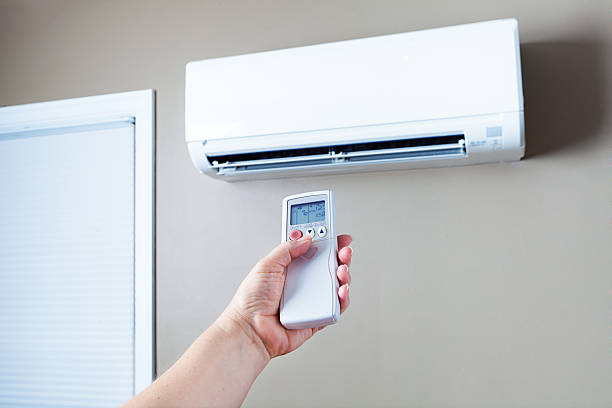1. Age of the Unit: The age of your air conditioning unit is a crucial factor in evaluating its efficiency and performance. On average, air conditioning units have a lifespan of about 10 to 15 years. If your unit is approaching or has surpassed this range, it may be more prone to breakdowns and may not operate as efficiently as newer models. Upgrading to a more energy-efficient system could result in cost savings in the long run.
2. Frequent Repairs: If you find yourself repeatedly calling for repairs and your unit is showing signs of frequent malfunctions, it may be more cost-effective to invest in a new air conditioning system. Continuous repairs not only accumulate expenses but also indicate that the unit may be reaching the end of its operational life.
3. Decreased Energy Efficiency: Advancements in technology have led to the development of more energy-efficient air conditioning units. If your current system is outdated, it may be significantly less efficient than newer models. Upgrading to a high-efficiency unit can reduce energy consumption, resulting in lower utility bills and a smaller environmental footprint.
4. Rising Energy Costs: Keep an eye on your energy bills. If you notice a steady increase in cooling costs despite regular maintenance, it could be a sign that your air conditioning unit is no longer operating efficiently. A new, energy-efficient unit may provide better cooling performance while consuming less electricity.
5. Inconsistent Cooling: If your home experiences uneven cooling or if some rooms consistently feel warmer than others, it may indicate that your current unit is struggling to maintain a consistent temperature. Upgrading to a more powerful and strategically placed system can improve overall comfort and airflow.
6. Environmental Considerations: Newer air conditioning units often come with environmentally friendly refrigerants and energy-efficient features that align with current environmental standards. If sustainability is a priority for you, upgrading to a more eco-friendly model can contribute to reducing your carbon footprint.
7. Home Renovations or Additions: If you’ve made significant renovations to your home or added extra square footage, your existing air conditioning unit may be undersized for the increased cooling demand. Upgrading to a larger and more powerful unit can ensure that your home remains consistently comfortable.
In conclusion, the decision to change your air conditioning unit involves a careful evaluation of its age, performance, energy efficiency, and overall condition. Regular maintenance and monitoring of your unit’s performance can help you make an informed decision that ensures optimal comfort and cost-effectiveness for your home. Consulting with a professional HVAC technician can provide valuable insights tailored to your specific situation.
Deciding when to change your air conditioning unit is a significant consideration for homeowners seeking optimal comfort and energy efficiency. Several factors contribute to the decision-making process, ranging from the age and condition of the current unit to technological advancements in newer models. Here’s a guide to help you determine when it might be the right time to replace your air conditioning unit.
1. Age of the Unit: The age of your air conditioning unit is a crucial factor in evaluating its efficiency and performance. On average, air conditioning units have a lifespan of about 10 to 15 years. If your unit is approaching or has surpassed this range, it may be more prone to breakdowns and may not operate as efficiently as newer models. Upgrading to a more energy-efficient system could result in cost savings in the long run.
2. Frequent Repairs: If you find yourself repeatedly calling for repairs and your unit is showing signs of frequent malfunctions, it may be more cost-effective to invest in a new air conditioning system. Continuous repairs not only accumulate expenses but also indicate that the unit may be reaching the end of its operational life.
3. Decreased Energy Efficiency: Advancements in technology have led to the development of more energy-efficient air conditioning units. If your current system is outdated, it may be significantly less efficient than newer models. Upgrading to a high-efficiency unit can reduce energy consumption, resulting in lower utility bills and a smaller environmental footprint.
4. Rising Energy Costs: Keep an eye on your energy bills. If you notice a steady increase in cooling costs despite regular maintenance, it could be a sign that your air conditioning unit is no longer operating efficiently. A new, energy-efficient unit may provide better cooling performance while consuming less electricity.
5. Inconsistent Cooling: If your home experiences uneven cooling or if some rooms consistently feel warmer than others, it may indicate that your current unit is struggling to maintain a consistent temperature. Upgrading to a more powerful and strategically placed system can improve overall comfort and airflow.
6. Environmental Considerations: Newer air conditioning units often come with environmentally friendly refrigerants and energy-efficient features that align with current environmental standards. If sustainability is a priority for you, upgrading to a more eco-friendly model can contribute to reducing your carbon footprint.
7. Home Renovations or Additions: If you’ve made significant renovations to your home or added extra square footage, your existing air conditioning unit may be undersized for the increased cooling demand. Upgrading to a larger and more powerful unit can ensure that your home remains consistently comfortable.
In conclusion, the decision to change your air conditioning unit involves a careful evaluation of its age, performance, energy efficiency, and overall condition. Regular maintenance and monitoring of your unit’s performance can help you make an informed decision that ensures optimal comfort and cost-effectiveness for your home. Consulting with a professional HVAC technician can provide valuable insights tailored to your specific situation.
